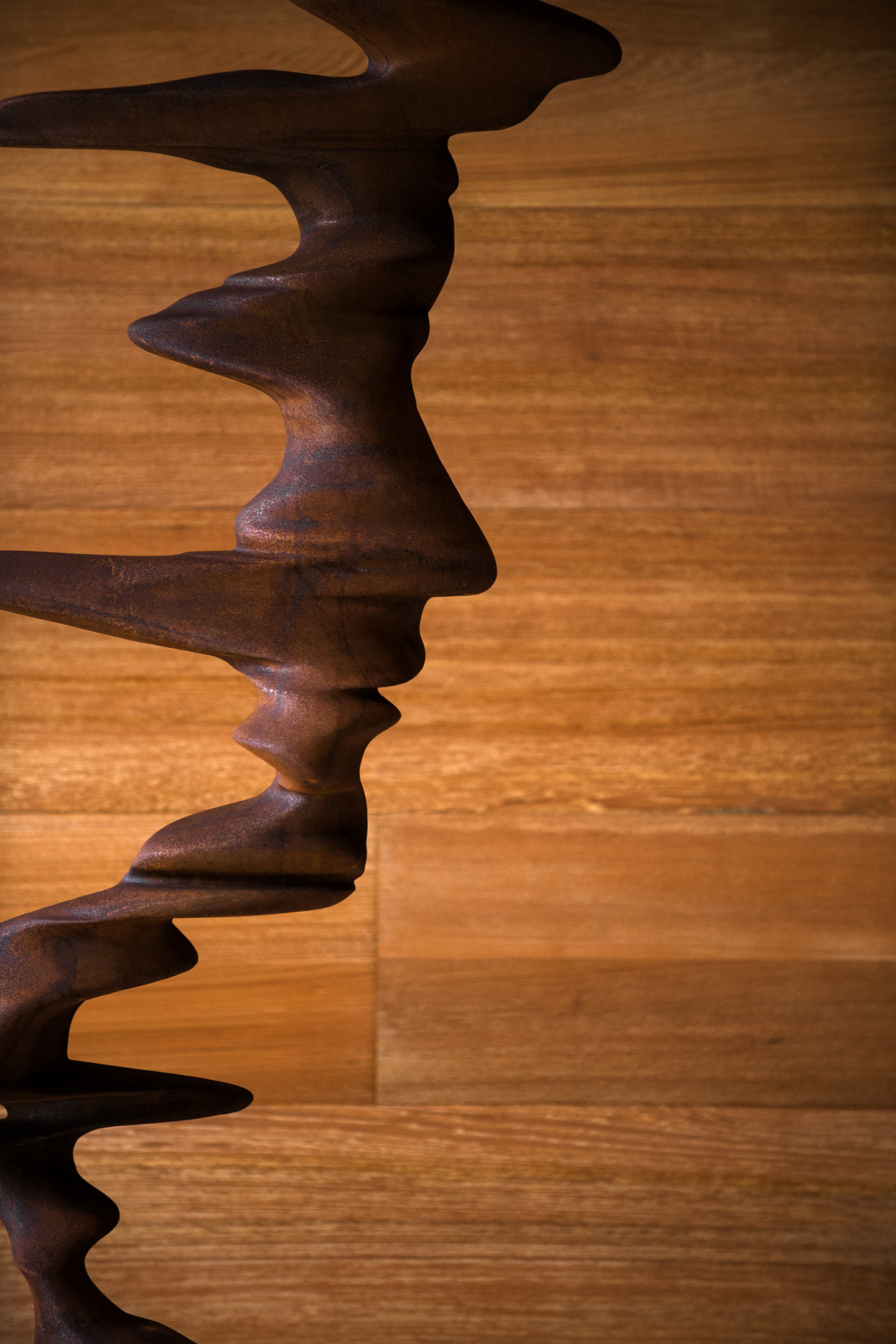Text by Lance Henderstein
Images by Lance Henderstein and courtesy of Wonderwood
Approaching the nondescript building located among a jumble of residential apartments, boutique shops, and hip cafés, it’s easy to miss the small sign marking the entrance to the Wonderwood showroom in Tokyo’s chic neighborhood of Daikanyama. Thick slabs of gnarled planed wood line the interior, taking up nearly all of the available wall space. The heady scent of hinoki cypress and fragrant camphor permeates the showroom, insulating it from the diesel-fueled haze of the Tokyo megalopolis outside.
In the middle of this urban forest of polished wooden tabletops stands Wonderwood’s 34-year-old founder and CEO, Yuki Sakaguchi. “It’s really hard for me to stay in Tokyo all the time,” Sakaguchi says, exhaling at the thought. “Everything here is so unnatural. The air is dirty, and the water is polluted. There are so many people here who feel disconnected from nature.”

Growing up in Tottori, Japan’s smallest and least populous prefecture, Sakaguchi was surrounded by sweeping sand dunes, sprawling national parks, and pristine nature preserves. “Tottori is close to the sea and the mountains, so as a kid I was able to enjoy nature year round,” he recalls. “Hiking in the mountains in spring to gather wild plants, swimming in the sea and collecting horned beetles in summer, camping in autumn, skiing in winter—nature’s rhythms became a part of who I am.”
As an iconoclastic youth, he chose a non-traditional path studying at Whittier College in California and the University of Ghana, setting himself apart in the competitive world of corporate recruiting after graduation. He landed an enviable position in the sales department of P&G Japan, but the thrill of his early career success was short-lived. “After about two years, I became completely depressed,” Sakaguchi says of his workaholic “salaryman” lifestyle. “But I continued to push myself. The only emotion I felt was wanting to die. So I decided to return to Tottori and end my life.”


Upon quitting his job and retreating to his hometown, Sakaguchi encountered a row of impressive slabs of wood lined up along the wall of a local café. He guessed that some came from trees that had lived for hundreds of years, surviving disasters both natural and man-made. Placing his hand on a large hole in one of the slabs of wood—a “scar from an injury,” as Sakaguchi describes it—he found himself moved to tears, struck by an overwhelming sense of connection to nature and to all living things, including himself.
As he relives the memory, Sakaguchi runs his hand along the surface of the table in front of him. “I suddenly felt those old trees were scolding me for thinking of ending my short life,” he says.
Deciding that he had nothing to lose—and despite no prior experience in the industry—Sakaguchi poured all of his savings into starting his own woodworking venture. He reached out to others in the community to better understand the business, consulted experts in the field, and launched Wonderwood in 2016, transforming his pain into an evangelism for reconnecting with nature through wood.



Wonderwood’s products, which range from single-plank tables to smaller items such as cutting boards made from hundred-year-old ginkgo trees, undergo a meticulous treatment process guided by Sakaguchi’s mentor and Wonderwood advisor, Asahi Higashide, who is said to be one of only two sawyers still practicing the craft of woodcutting in the traditional Japanese way.
Among the diverse woods that Wonderwood sources from its trusted network throughout Japan is yakusugi, the name given to Japanese cedar that is upwards of 1,000 years old and from the remote island of Yakushima. “They say it rains 366 days out of 365 days in a year on the island, and the ground is mostly bedrock,” Sakaguchi says. “It’s difficult for trees to use transpiration to gather nutrients. It may be the tree that has struggled the most in Japan, so I love the yakusugi.”


Sakaguchi is also particularly excited about Wonderwood’s offerings made from mizunara oak, a rare wood in high demand in the Japanese whiskey industry and one with strict logging regulations as a result of overharvesting. Wonderwood was able to acquire felled mizunara wood from the protected forests of Mount Fuji, considered so precious that Yamanashi Prefecture negotiated with government officials for two years to remove it.
To ensure buyers continue to enjoy these prized goods for the rest of their lives, Wonderwood offers after-purchase support services as the wood ages and reveals its natural imperfections. The company continues to maintain a 12-meter-long table for Muji Hotel Ginza that was crafted from 450-year-old camphor wood from Odawara Castle near Mount Fuji in Kanagawa Prefecture—a testament to the trust Wonderwood is committed to building with its clientele.
“I truly think that adding even one piece of Mother Earth to our lives changes the way we interact with the world and the decisions we make on a daily basis,” says Sakaguchi, who now lives in the surf town of Ichinomiya on the Chiba coast, having fallen in love with surfing on a trip to Hawai‘i in 2024. “Nature has a powerful influence on us. We all need to rediscover that connection if we are going to survive.”





